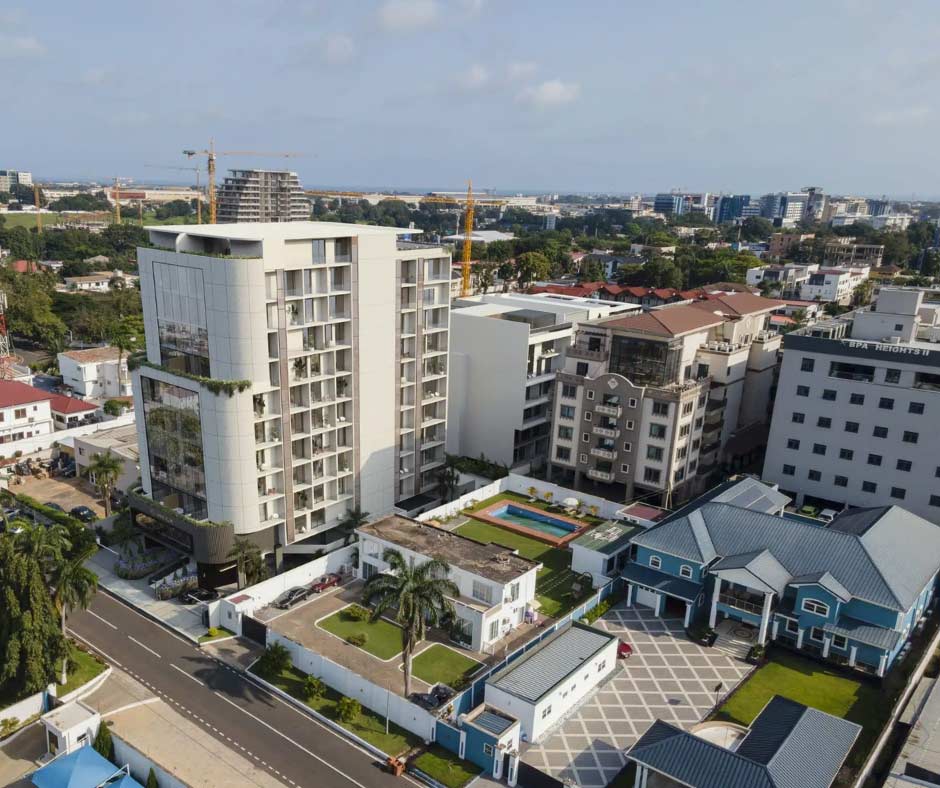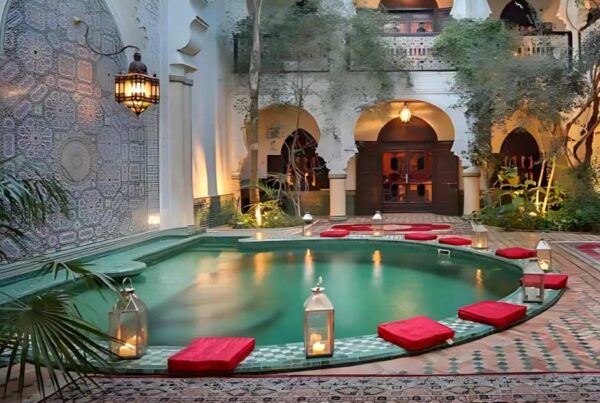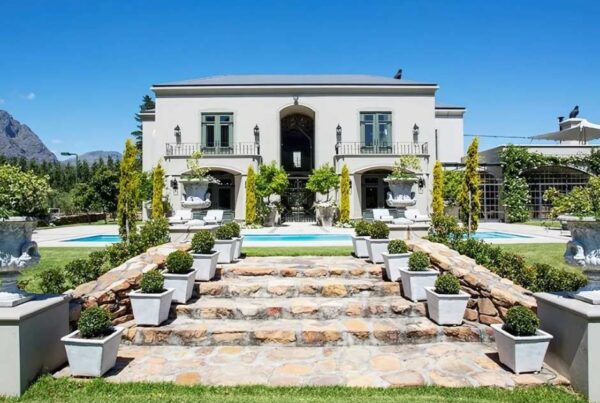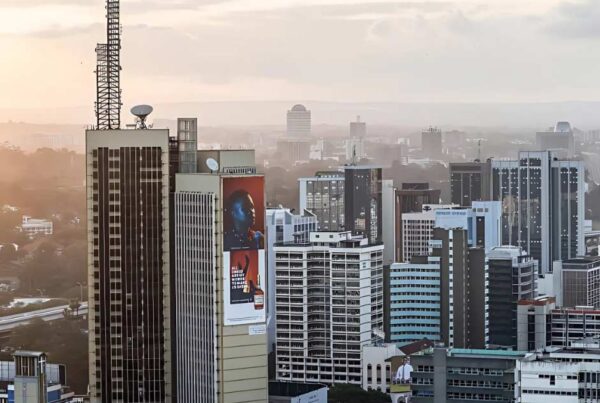Accra, the bustling capital of Ghana, is rapidly emerging as one of West Africa’s most dynamic real estate hubs. Over the past few years, the city’s property market has been energized by a convergence of factors: strong economic growth, political stability, and a growing wave of diaspora investment. Now, Accra is not only a centre of government and commerce, but also a magnet for Ghanaians abroad, African American returnees, and global property investors looking for both financial returns and cultural roots.
Much of Accra’s real estate resurgence can be traced to Ghana’s highly successful “Year of Return” initiative in 2019, which invited people of African descent around the world to visit, invest, and reconnect with the continent. The campaign generated over one million visitors and sparked a global conversation around repatriation and African heritage. Building on this momentum, the “Beyond the Return” initiative has sustained interest by focusing on economic ties, including property ownership.

As a result, thousands of Ghanaians in the U.S., UK, and Canada—as well as African Americans seeking a deeper cultural connection—have begun buying land and homes in Accra and its surrounding suburbs. For many, it’s not just about investment, but legacy and belonging.
This demand has fuelled a significant rise in high-end developments in areas such as Cantonments, East Legon, Airport Residential, and Labone. These neighbourhoods offer gated communities, luxury apartments, and penthouses with features like rooftop terraces, gyms, and concierge services. Prices for such properties typically range from USD 150,000 to USD 500,000, with some prime addresses exceeding that.
While the luxury segment grabs headlines, the middle-income housing market is where the greatest volume of activity is occurring. Developers are actively building more affordable housing in rapidly expanding suburbs like Oyarifa, Adenta, Amasaman, and Pokuase. These areas are increasingly appealing due to ongoing infrastructure improvements, including the Accra-Tema Motorway expansion, new flyovers, and better access to public transport.
Homes in these emerging suburbs are priced between GHS 200,000 and GHS 500,000 (USD 13,000–32,000), making them accessible to professionals, young families, and returnees looking for a manageable entry into Ghana’s housing ladder.
To further encourage investment, the Ghana Real Estate Developers Association (GREDA) and the Ministry of Works and Housing have been promoting public-private partnerships that aim to create inclusive housing solutions. One key initiative is the National Affordable Housing Program, which aims to deliver over 8,000 housing units annually to meet growing demand.
Despite its potential, Accra’s real estate market is not without challenges—chief among them is land tenure security. The city has a complex land ownership system involving stool (chief-owned), government, and private freehold titles. Conflicting claims and documentation issues are not uncommon, especially in peri-urban areas.
To address this, the Lands Commission of Ghana has begun digitizing land records, aiming to improve transparency and reduce fraud. These reforms are essential in building trust with diaspora and foreign investors who are often unfamiliar with Ghana’s traditional land systems.
In addition, the cost of construction materials remains high due to import reliance and currency fluctuations. Developers often pass these costs on to buyers, making affordability a constant balancing act.
Another growing trend in Accra is the rise of short-term rentals and Airbnb properties. Areas near the airport and diplomatic quarters are popular with business travellers and tourists, generating solid yields for owners. Occupancy rates in short-let apartments average 60% to 80%, with nightly rates ranging from USD 50 to USD 150, depending on location and amenities.
On the commercial side, demand for Grade A office space remains relatively stable in areas like Ridge and Airport City, although the remote work shift has created new interest in flexible co-working spaces. Tech hubs like the Accra Digital Centre and Impact Hub Accra are also fostering innovation, drawing a new demographic of entrepreneurs who eventually transition into residential buyers.
For many diaspora buyers, Accra represents more than just a real estate opportunity—it’s a chance to reclaim identity, reconnect with ancestry, and participate in Africa’s growth narrative. Property ownership becomes both a personal milestone and a contribution to nation-building.
At the same time, investors see a relatively stable currency, a favourable business climate, and strong economic indicators. Ghana’s GDP is forecast to grow by 4.7% in 2025, and the real estate sector is expected to remain a major driver of that expansion.
As Accra continues to urbanize, the real estate market offers diverse entry points for luxury investors, first-time buyers, and entrepreneurial returnees. With enhanced infrastructure, supportive government policies, and a vibrant cultural scene, Accra is well-positioned to be not just a gateway to West Africa but a real estate powerhouse.







